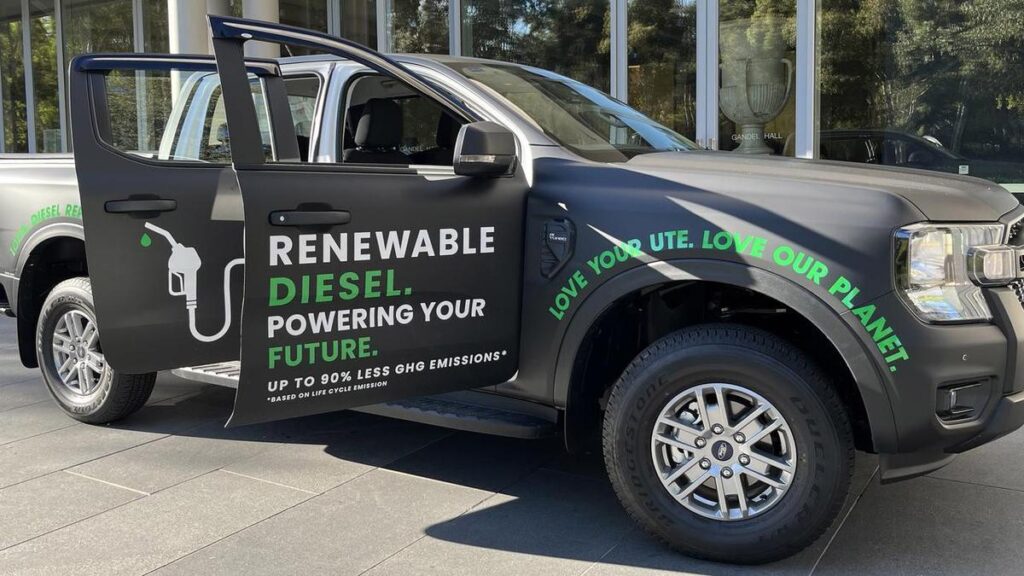
Australia is poised to develop a multibillion-dollar biofuels industry, leveraging an array of waste materials including sugar cane, wood chips, and used cooking oil. The Queensland-based company, Wagner Sustainable Fuels, is establishing a biofuels production facility as part of a broader initiative to reduce emissions in challenging industries. On September 27, 2023, the company also inaugurated Australia’s first biofuel blending facility, highlighting the potential for significant economic and environmental benefits if the nation acts decisively.
According to Wagner’s chief executive, Matt Doyle, “Waste products will be the new oil.” He emphasized that Australia possesses an abundance of waste resources, positioning the country as a potential leader in sustainable aviation fuel and renewable diesel markets. This optimism aligns with the federal government’s recent investment of $1.1 billion aimed at boosting biofuel production and the launch of a public consultation for a national strategy in this emerging sector.
The biofuels industry, also referred to as low-carbon liquid fuels, utilizes renewable resources such as agricultural waste. These fuels are increasingly recognized as vital for reducing emissions in sectors that lack viable alternatives. For instance, sustainable aviation fuel is projected to play a crucial role in helping airlines achieve their 2050 net-zero emissions targets, contributing estimated reductions of up to 65 percent.
Domestic airlines, including Qantas and Virgin Australia, are actively pursuing biofuel options, according to Doyle. He pointed out the limitations of alternative technologies, noting that electric planes are only suitable for short-haul flights while hydrogen solutions may take until 2035 or later to become viable for medium-haul routes. For long-haul flights, sustainable aviation fuel remains the only realistic option through 2050.
Wagner Sustainable Fuels is developing a production facility in Brisbane, co-funded by the Australian Renewable Energy Agency (ARENA), which is expected to generate 114 megalitres of fuel annually. The company’s new blending facility at Wellcamp Airport currently utilizes imported synthetic fuel to combine with standard jet fuel until domestic supply becomes available. Doyle expressed hope that their facility could serve as a model for effective federal policies that would foster industry growth.
Support for biofuels is gaining momentum across Australia. In addition to the recent funding announcement, the government has initiated a 10-year Cleaner Fuels Program to stimulate biofuel production. The development of a National Bioenergy Feedstock Strategy is also underway to ensure the country can produce sustainable materials for renewable fuels.
This increasing governmental support is welcomed by industry leaders. Shahana McKenzie, chief executive of Bioenergy Australia, highlighted the potential for Australia to emerge as a key player in the Asia Pacific biofuels market, given its robust agricultural sector. “Australia is being looked at by all the other players in our region as the most likely contributor,” she noted, underscoring the importance of active decarbonization across neighboring jurisdictions.
Currently, Australia operates three biodiesel and two ethanol refineries, with three additional projects in development: Wagner’s Brisbane facility, Ampol‘s proposed renewable fuels site in outer Brisbane, and Jet Zero’s Project Ulysses in Townsville. McKenzie expressed confidence that Australia could meet close to 10 percent of its aviation fuel market needs by the early 2030s, projecting the first biofuel project to deliver fuel by 2028.
Despite the progress, challenges remain. Tim Buckley, director of Climate Energy Finance, noted that renewable fuels are significantly more expensive to produce than conventional fossil fuels. He indicated that mandates will be necessary to facilitate widespread adoption, particularly in the maritime and aviation sectors.
Upcoming votes by the International Maritime Organisation may shape the future of renewable fuels in shipping, while the aviation industry seems more amenable to mandates that require limited biofuel use. Buckley explained, “If it’s only a tenth of your fuel and everyone’s got the same rules, the airlines won’t fight it.” The pressing need for alternative technologies underscores the urgency of transitioning to sustainable fuel solutions.
As Australia navigates its path towards a robust biofuels sector, the potential for economic growth and environmental sustainability stands at a critical juncture. The momentum generated by recent investments and policy initiatives may well determine the country’s role in the global transition towards cleaner energy.






